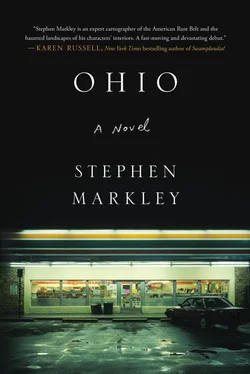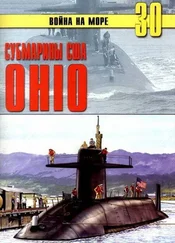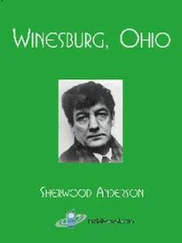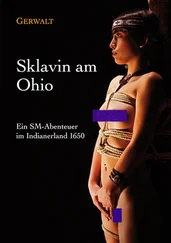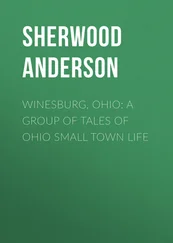The men who orchestrated the attack were quickly found. The security cameras caught the truck and its license plate, as well as an image of the man who’d left the bomb. It took police only fifteen hours to make an arrest, the FBI joining with local law enforcement to descend on a sad farm in Northeast Ohio to take into custody Amos Andrew Flood, Francis David Flood, and Kirk Radville Strothers. Upon returning home, the three men had had a heated argument about what went wrong, Kirk having successfully planted the bomb while his cousins “pussed out.” Then they sat down to drink and smoke marijuana until the authorities arrived. They were so inebriated when they were taken into custody that the police had to put them in the drunk tank and wait to book them. All three would make plea deals to avoid the death penalty. Kirk was sentenced to life in prison, Francis and Amos to twenty years each. There was some outrage at the latter sentences and even more so at the popular narrative that accompanied the attack. The media tended to shy away from the word terrorism in this case, which many found indefensible. The incident certainly vanished from the national outlets quickly, buried under the news cycle’s accelerated avalanche. Even the hometown paper The Columbus Dispatch found that reporting on the subject had an adverse effect. Daily circulation and website traffic declined noticeably whenever they ran front-page news about the case, and editors learned to keep any updates relegated to the interior of the paper.
After the arrests, Martin Brinklan, chief investigator for the New Canaan Police Department, put in his retirement papers—three years later than he’d planned. He’d always been one to stay busy, to stay working long after everyone else had shut off their lights and returned home to their televisions, but there comes a point when a man can no longer spend all his waking hours looking at the stupid cruelty people regularly visit upon one another. In his consultations with the FBI, he’d grown frustrated by their disinterest in following all the tributaries of the case. For instance, how had the three men financed the operation? They had a small marijuana farm on their property, ran a little methamphetamine, and salvaged spare parts from old cars, but this was dumb chump change. He’d known about these boys when his son was in school, and they were always a few fries short of a Happy Meal. Certainly not criminal masterminds of any kind. He was convinced someone had given them a good chunk of cash for this, but he could never prove it. Additionally, the brothers gave up their connection in Louisiana, an ex-navy guy who’d sold them the explosive, but that man claimed he’d never met Strothers or either of the Floods. He claimed he’d made a deal with a woman and made the exchange with yet another party: an unidentified twentysomething white male. Prosecutors found the scope of this plot unrealistic. They thought the seller was trying to get himself a deal to reduce his time by implicating imaginary co-conspirators. Marty suspected other players. Individuals who had melted away.
He moved down to the Florida Panhandle to retire, and to be near his living son. His hometown, where he’d lived all sixty-seven years of his life, no longer felt like home. He planned to make yearly trips on Rick’s birthday to visit his grave and to talk to him in the quiet of Dryland Creek Cemetery. On headphones, he’d listen to songs written by his son’s friend. He would talk about the family, how he missed Rick’s mother but not enough to call her, and he felt his son’s prayers coming from somewhere—either heaven or the deepest parts of his memory, he was never so sure—while the hot, bright day passed into a sunset that hurt his eyes.
This stupid act of cruelty, as utterly pointless as the bullet that had taken Marty’s youngest boy, set off a second, disparate chain of unwinding mystery. The way Ben Harrington once explained it in a crude early song was that love may be planned and violence may be aberrant, but both ripple outward all the same. The mostly failed massacre at Masjid Al-Amin, which garnered national attention for only a handful of days before other gruesome incidents, public political catfights, tech and finance saturnalia, and celebrity gossip swallowed it whole, set in motion a series of events that, four years later, would send a woman to Chicago in search of answers from a long-lost friend.
* * *
Like that bizarre night of the confluence, in the spring of 2017 an evening of unstable air and lift brought with it a mighty storm. When the rain began, the first stout drops hit the pavement similar to the way excess dew shakes free of a leaf, droplets too fat to come from the clouds. But then came the wind, tearing off Lake Michigan like the breath of God, scattering loose, abandoned sheets of newspaper down the streets, picking up trash and blasting it down city blocks, driving every pedestrian to seek shelter as the full-fledged midwestern thunderstorm barreled in: a hard, sluicing downpour the city was seeing more frequently in recent years, bursts of meteorological wrath more akin to fetal typhoons. You could only run for cover or face it like a bull rider, as a beast that flexed and bucked. The rain came sideways, from overhead, it even seemed to spring forth from the soaking macadam grid. It filled the river; it turned the surface of the lake into a foaming white-capped stew. The airports shut down, the wildlife hid, the gutters overflowed, and the streets filled with inches of dirty water. The gray-blue tint of dusk gave way to a deep midnight hue. The believers out there could squint and almost imagine this as the much talked about End of Days, the season of Noah’s flood rather than the fire next time. Many of them secretly wished for it.
The downpour dragged on, and because it was a Sunday and past business hours, the unfortunate few caught in the deluge had little opportunity for shelter. When the storm exploded in the sky without warning, the woman made a futile gesture of putting her handbag over her head before scavenging an umbrella from a nearby Walgreens. Even with the umbrella, she ended up running, her flats slapping sharply over the roar of the rain. The bar tucked away downtown on the corner of Hubbard and Franklin was one of the few places open. She recognized the point of rendezvous from online images, all glass and warm light, an antique sign overhead advertising Phillies Cigars for five cents. She managed to get in the door before the downpour began in full fury.
The man was not so lucky. Dressed in a suit, making the walk from his hotel, the thunderstorm whipped up, and his umbrella was inside out and flaccid within minutes. He chucked it, ran the remaining two blocks, and was soaked through to his underwear. The light from the bar cut a slice of dark from the pavement, and it was this slice that led him, his shoes beating sprays of rain into his socks. He let out a sharp breath of relief even as his hand skidded off the slick brass door handle. Three heads turned as he tore inside—a couple, twiddling straws at the bar, and a bartender in dark clothes and a bleach-white apron. And then there was Stacey Moore, waiting for him in a booth, fourteen years after Bill Ashcraft had last seen her. She thought he looked remarkably similar, but not in a good way. He’d grown a thick black beard stitched through with premature gray, like someone had shoddily aged him via computer program and wrapped him in a lousy suit and tie. From Bill’s perspective, she’d changed drastically from the girl he’d known, the one Ben Harrington had once described as “the hottest church-camp girl in the school.” Now she had a messy boy’s haircut, tattoos on her arms, on her fingers, and one peeking out from her clavicle, red and black threads that appeared to spool down her chest. She’d gained weight, and her eyes (like cirrus clouds, pale, gossamer blue) were now each surrounded by a haiku of wrinkles. He noticed a faint scar on the side of her skull, above the ear, a thin pink line where the hair no longer grew.
Читать дальше
